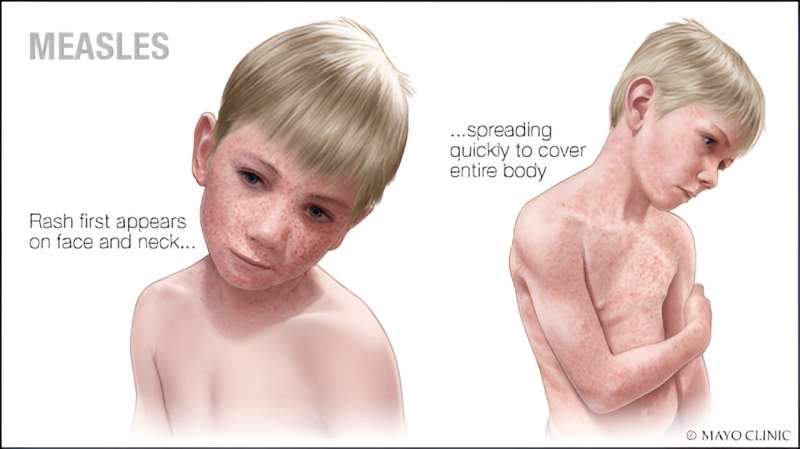This article has been reviewed according to Science X's editorial process and policies. Editors have highlighted the following attributes while ensuring the content's credibility:
fact-checked
trusted source
proofread
Video: Childhood vaccines: Moving the needle up

Childhood immunization rates around the globe are beginning to recover from the dramatic drop in routine childhood vaccination during the COVID-19 era, according to a report from the World Health Organization and UNICEF. Childhood vaccines protect kids from serious diseases and complications.
While that's good news, the numbers still remain lower than pre-pandemic levels. Dr. Nipunie Rajapakse, a pediatric infectious diseases physician with the Mayo Clinic Children's Center, says the lower rates of childhood vaccines leave many kids susceptible to vaccine-preventable infections.
"We saw routine vaccination rates among children drop around the world due to a variety of different reasons, including access to care during the pandemic," says Dr. Rajapakse.
The hope is to get more kids back on the routine vaccination schedule.
"The vaccines and our routine immunization schedule here in the United States protect against many different illnesses—including life threatening illnesses but a variety of things like whooping cough, tetanus, influenza, COVID-19," says Dr. Rajapakse.
And protection against some common bacterial infections.
"The beauty of vaccines is that they give you immunity without having to go through the risks of having the infection itself to gain that immunity. It kind of primes your immune system and teaches that how to fight off the bacteria or virus, for example, without ever having to come in contact with it directly itself," she says.
These vaccines have been rigorously tested.
"Those vaccines are very safe and very effective vaccines," Dr. Rajapakse says.
Routine childhood vaccine schedule
Chickenpox, tetanus, HPV, measles, mumps and rubella are a few of the important immunization series that prevent kids from getting sick. A seasonal influenza vaccine is encouraged for all people ages 6 months and older.
The Centers for Disease Control and Prevention (CDC) offers a child and adolescent immunization schedule by age. Check out the CDC website for more information on these vaccines.
Talk to your health care team to learn more about what vaccinations your child needs.



















